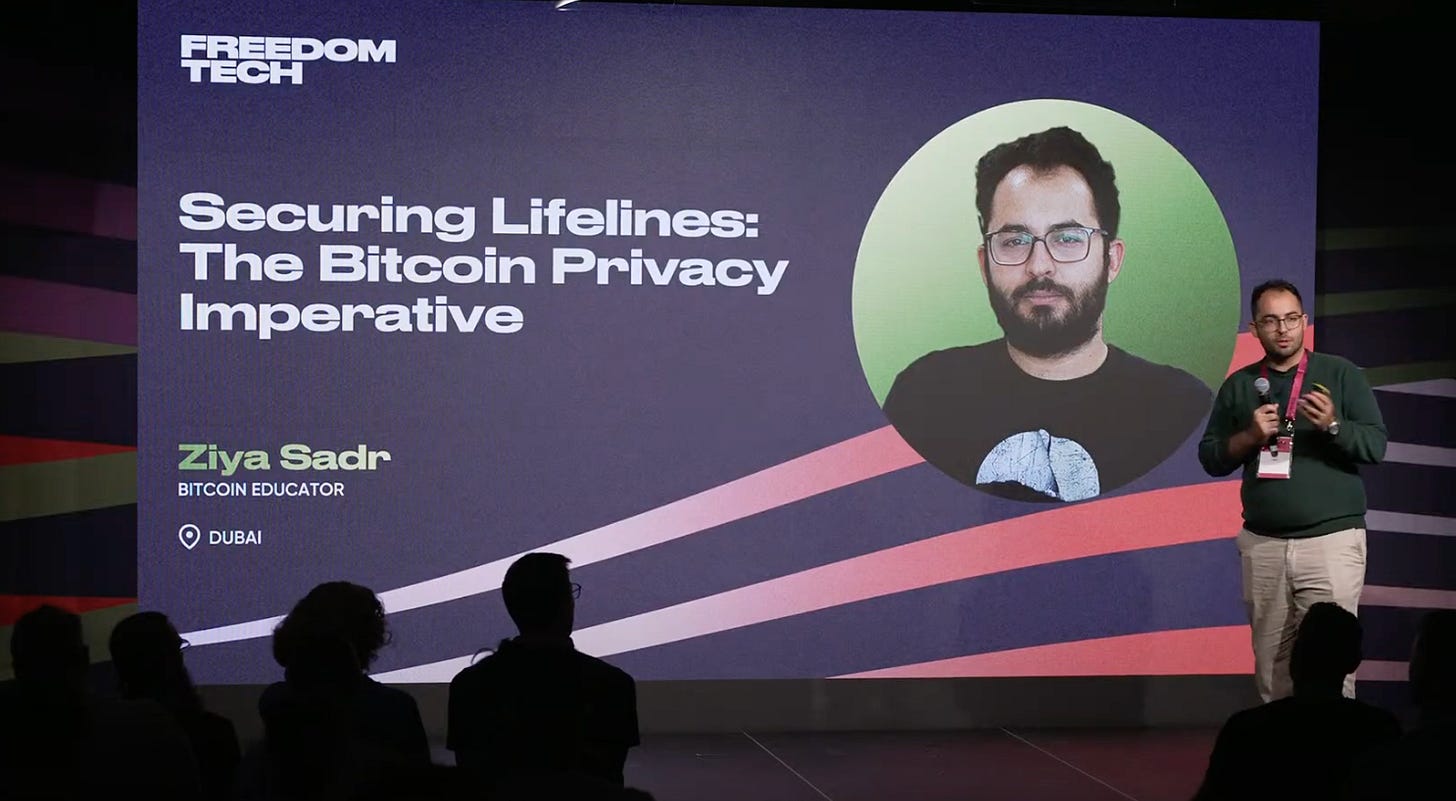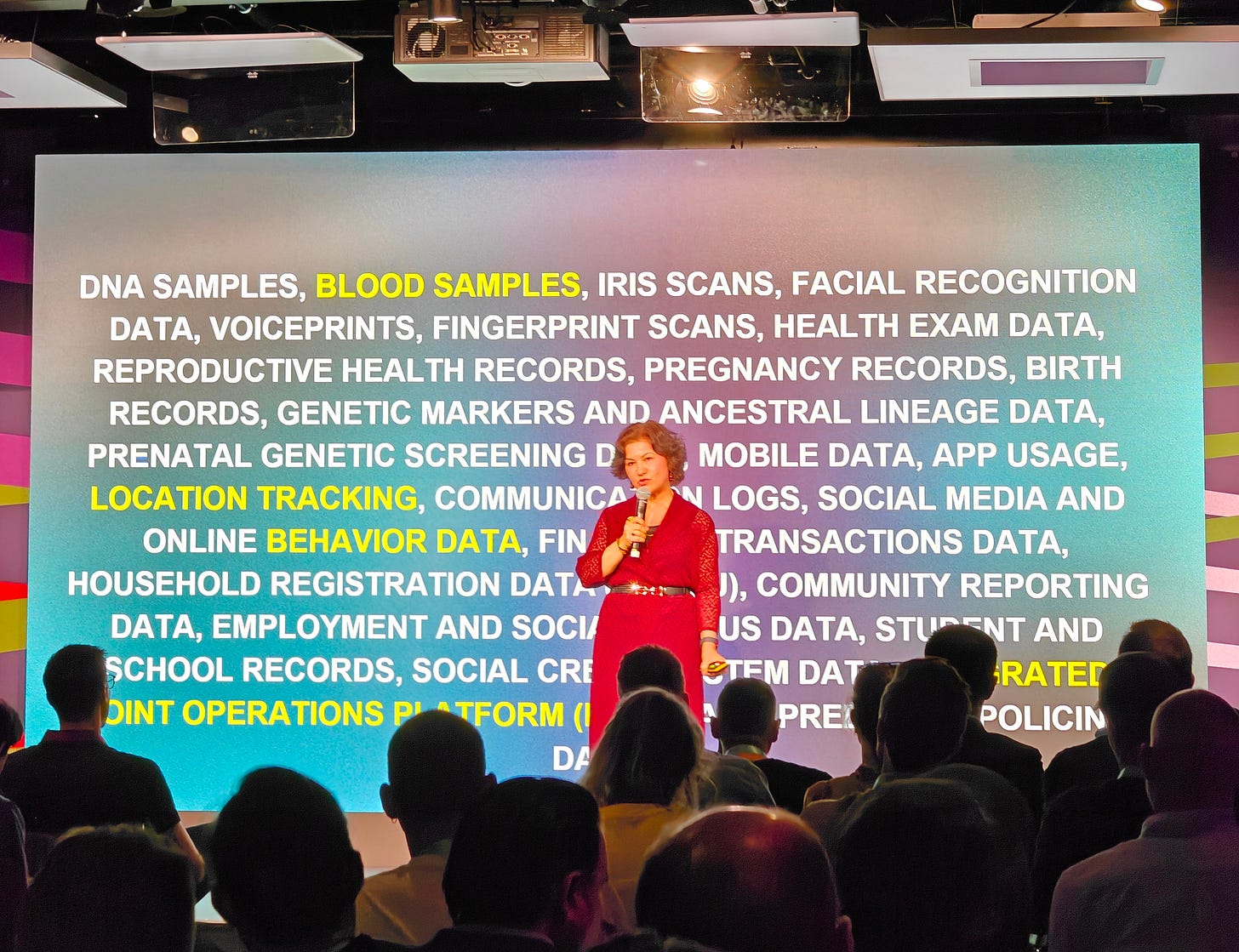As I step onto the aircraft leaving Gardermoen Airport in Oslo, Norway, the burden and heat of the previous week settles into my chest.
The Oslo Freedom Forum isn’t a convention. It’s not a summit. It’s one thing more durable to call and even more durable to explain — a convergence of braveness, fact and defiance that burns by means of the noise of the trendy world and provides you no selection however to pay attention, really feel and act.
For the second time, I go away this metropolis extra satisfied than ever that one thing unstoppable is rising. That amid the censorship, surveillance and state repression spreading throughout the globe, there’s a countervailing pressure rooted in humanity, accelerated by expertise and led by those that’ve already paid the value for talking out.
The Forum doesn’t commerce in empty optimism. It delivers a unique sort of hope, solid from lived expertise and stitched collectively by individuals who have been at midnight and nonetheless select to see the sunshine. A hope borne from the tales of people who’ve lived by means of the worst an authoritarian regime can do and nonetheless select to battle for the liberty of others. The experiences shared had been laborious. At instances, devastating. However they weren’t provided for pity. They had been calls to motion.
Simply days after she was kidnapped, blindfolded, tortured, and sexually assaulted in a Tanzanian jail cell, Agather Atuhaire stood in entrance of a crowd of strangers and informed her story.
Her voice didn’t tremble.
The Ugandan journalist and lawyer had traveled to Tanzania in solidarity with fellow East African dissidents, solely to be disappeared in a black van alongside Kenyan activist Boniface Mwangi.
And but, towards all odds, she got here again. Not simply to her residence in Uganda, but in addition to the stage in Oslo, the place she spoke calmly and clearly about what it means to inform the reality beneath a dictatorship.
Her presentation, “The Digital Free Speech Crackdown in Uganda,” laid naked the authoritarian playbook: social media blackouts, propaganda campaigns, surveillance of journalists and the gradual monetary asphyxiation of unbiased media. When the federal government doesn’t like a narrative, it merely blocks the platform or web site. When a journalist digs too deep, they disappear for some time. Or ceaselessly. Atuhaire painted an image many wrestle to even think about.
And but, after every part, she didn’t simply recount these struggles. She appeared out on the crowd and thanked the open supply builders and contributors who write code and create instruments that make it potential for activists like her to talk, transfer cash and set up beneath regimes that need them silenced, or worse.
(Ugandan journalist and lawyer, Agather Atuhaire, speaks through the Freedom Tech monitor on the 2025 Oslo Freedom Forum.)
From Iran, unbiased Bitcoin educator Ziya Sadr reminded us that monetary privateness isn’t a luxurious however a needed lifeline for these going through the monetary repression by oppressive rulers. Sadr’s detainment through the 2022 Girls, Life, Freedom motion following the homicide of Mahsa Amini by the Iranian regime is a testomony to that. With out monetary privateness, activists’ actions, connections and funds are uncovered to a regime geared up with widespread monetary controls and a classy, restrictive web firewall that rivals even China’s.
The consequence is among the most repressive digital environments on the planet. And if that wasn’t sufficient, the Iranian rial forex has misplaced greater than 80% of its worth in just some years.
Towards this backdrop, Iranians are utilizing bitcoin as undebasable financial savings, and to purchase digital companies like VPNs as a way to entry the open web. However even that act, simply reaching the surface world, requires a degree of privateness most of us take as a right.
In his presentation, “Securing Lifelines: The Bitcoin Privacy Imperative,” Sadr shared that many Iranians flip to Bitcoin Coinjoins, a privateness method that breaks the hyperlink between Bitcoin transaction inputs. Coinjoins protect person transaction privateness and, extra importantly, protect Iranians from the surveillance and retaliation of a regime who punishes anybody making an attempt to entry data past its tightly managed digital areas. The use of Coinjoins is changing into tougher as international authorized stress mounts towards open supply builders, and within the aftermath of the Samourai developer arrests, privateness protocols like Whirlpool are unworkable.
At present, Sadr is studying extra about further Bitcoin privateness instruments, together with Paykoin, a privateness methodology that permits two customers to contribute an enter to a Bitcoin transaction. Payjoin breaks frequent chain evaluation heuristics and conceals the sender and receiver of a transaction in addition to the cost quantity. Then there’s ecash, a type of digital money backed by Bitcoin that permits very non-public, on a regular basis funds with the custodial trade-off of trusting mints (entities that situation and redeem ecash tokens) to retailer person funds.
The continued growth of those protocols is essential for Iranians, who reside beneath a authorities that not solely tracks and surveils digital habits, but in addition imposes computerized fines on ladies for violating hijab guidelines and manipulates forex alternate charges to revenue off residents’ financial savings. For tens of millions in Iran, bitcoin presents a final line of protection towards a collapsing forex, intrusive surveillance and complete monetary repression.

(Impartial Iranian Bitcoin educator, Ziya Sadr, speaks through the Freedom Tech monitor on the Oslo Freedom Forum.)
Venezuelan opposition chief Leopoldo López took the stage on the 2025 Oslo Freedom Forum not as a politician, however as a witness to what occurs when a state turns its establishments into additional tendrils of its repression machine.
After Nicolás Maduro stole Venezuela’s 2024 elections, López watched hundreds of his fellow folks — activists, college students, journalists, opposition members and legal professionals — get arrested, disappeared or compelled into exile. The regime blocked entry to social media, revoked passports, criminalized dissent and used the monetary system as a way of controlling the inhabitants.
Amid this digital repression and Venezuela’s 162% inflation price, López sees bitcoin (decentralized cash) and Nostr (decentralized social media) as lifelines. When dictators shut down the web or freeze your checking account, alternate options which can be open supply, decentralized, uncensorable and accessible turn out to be extra necessary than ever for the survival of democracy and freedom.
“Decentralized resistance is the convergence of people, Bitcoin, Nostr, and AI.
People, it’s about the center and the end of what we are doing.
Brave women and men who sacrifice their freedom, who take risks, who are willing to fight for other people.
If it’s not about people, technology wouldn’t be something worth fighting for.
Bitcoin is freedom money. It’s decentralized, nobody controls it, nobody can stop it, it can move around without borders.”
(Venezuelan Opposition Chief Leopoldo López through the Freedom Tech monitor on the 2025 Oslo Freedom Forum.)
For many years, Paraguay’s best pure useful resource, hydroelectric energy, has flowed in a foreign country by means of worldwide contracts, fueling growth in neighboring nations like Brazil and Argentina whereas one in 4 Paraguayans remained trapped in poverty. Paraguay’s Itaipu Dam, one of many largest on the planet, has lengthy symbolized this paradox: a river of power diverted away from the very individuals who want it most.
Björn Schmidtke and Delia Garcete of Penguin Group are flipping that script.
In a landmark transfer, they secured Paraguay’s first 100-megawatt energy buy settlement, marking the start of a daring experiment to reclaim that power for the folks of Paraguay. As a substitute of promoting it off to overseas powers, they use it to mine Bitcoin — and the proceeds go to Paraguay’s youth.

(Itaipu dam, Paraguay)
Out of the warmth of buzzing ASICs and the roar of the Itaipu generators rises Penguin Academy, a free software program growth faculty that equips younger Paraguayans with coding, growth and technical expertise. Over 10,000 college students have utilized, together with 800 ladies; greater than 3,000 have already graduated. And over 85% of the graduates from their Code Professional program now work within the tech business.
What was as soon as wasted or exported is now being remodeled into freedom and a future. By means of bitcoin, Paraguay’s stranded power is discovering its means residence.
Rushan Abbas is a Uyghur activist who has spent years elevating the alarm in regards to the Chinese language Communist Social gathering’s marketing campaign to erase her folks. In the course of the Freedom Tech monitor, she spoke not simply as a human rights advocate however as a sister whose sibling, Dr. Gulshan Abbas, was kidnapped by the CCP in 2018 and hasn’t been heard from since. Her voice was calm, however her phrases had been heavy.
Abbas described a area became a digital and bodily jail. The Uyghur homeland, East Turkistan, has been deliberately remodeled into one of many world’s most refined police states, the place mass surveillance, facial recognition methods, police checkpoints, asset seizure, organized marriage, sterilization and compelled labor are used not simply to manage the Uyghur inhabitants, however to suppress them out of existence.
As Rushan describes it: “Break their lineage, break their roots, break their connections, and break their origins.”
Rushan made clear that financial management is central to the CCP’s technique. Uyghurs have their belongings and financial institution accounts frozen, their land seized and their houses stolen. They are stripped of any skill to avoid wasting, transact or construct generational wealth, and are compelled into government-run labor schemes beneath the guise of “poverty alleviation.”
Rushan reminds us that what’s taking place to the Uyghurs isn’t summary. It’s a focused, systematic erasure carried out with weaponized expertise and monetary repression. Her sister’s disappearance is considered one of tens of millions of silenced lives, however she refuses to let or not it’s forgotten. In Oslo, Rushan stood not simply as a witness, however her phrases served as a warning: When a authorities can monitor each transaction, surveil each citizen and management each motion, it doesn’t simply repress however totally dismantles the foundations of a folks’s id, autonomy and future.

(Uyghur activist Rushan Abbas speaks through the Freedom Tech monitor on the 2025 Oslo Freedom Forum.)
For these causes and extra, you don’t go away the Oslo Freedom Forum feeling defeated. You permit reminded that fact is extra highly effective than propaganda, that code can shield life and that resistance isn’t simply potential — it’s already taking place.
And should you’re lucky sufficient to reside in a spot the place talking freely or shifting cash isn’t a life-risking act, you’re reminded of the privilege that comes with that freedom and the duty you need to stand with those that are nonetheless preventing for it.
This 12 months, I felt a noticeable pulse of momentum round freedom tech. As we noticed above, human rights defenders and dissidents didn’t simply speak in regards to the repression they endured. They emphasised the optimism in regards to the instruments that assist them peacefully battle again: Bitcoin, Nostr, privateness instruments, open supply AI fashions, uncensorable VPNs — instruments that work within the shadows, beneath firewalls, round embargoes and past borders. Instruments that construct a parallel system, the place the suitable to transact, talk, set up and resist can’t be revoked on the press of a button.
These are the devices retaining actions alive, getting cash to dissidents and defending voices in danger. And behind each instrument is a quiet builder, a pseudonymous contributor or an open supply developer who could by no means take the stage however is simply as a lot part of the story.
The Oslo Freedom Forum isn’t just a gathering of voices. It’s a frontline, a spot the place the longer term is crafted by those that refuse to provide in. And what emerges from that convergence is a straightforward, plain fact: Authoritarianism adapts, however so can we. With Bitcoin, with open supply instruments, with decentralized networks, with unstoppable braveness.
At 30,000 ft, effectively above the noise and borders they attempt to implement, one factor is evident: No authoritarian regime, regardless of how brutal or effectively funded, has ever succeeded in stamping out the human need to be free. The Oslo Freedom Forum is proof of that. And should you’re paying consideration, it’s additionally a glimpse into what comes subsequent.
This isn’t the tip. It’s only the start of the following chapter. One written not by the highly effective, however by the free.
Onward.


